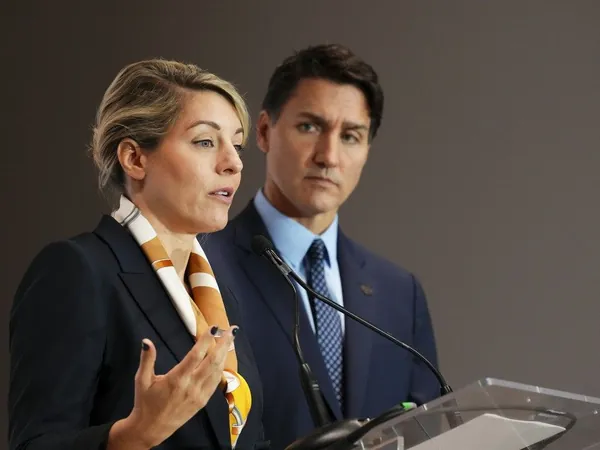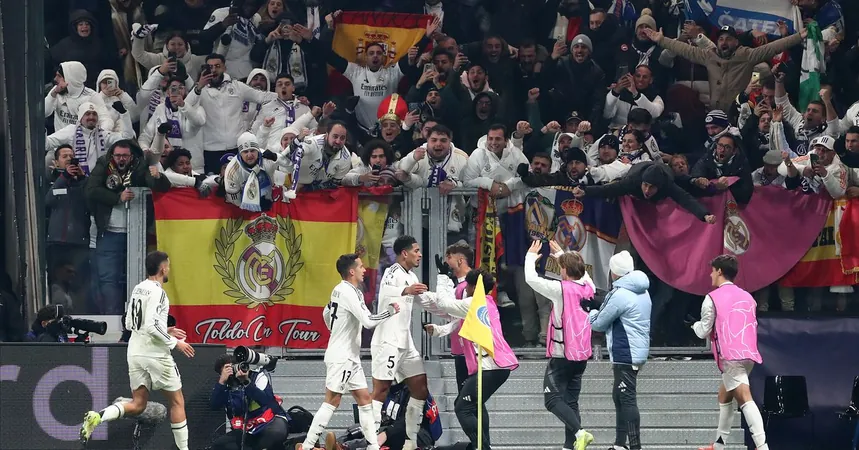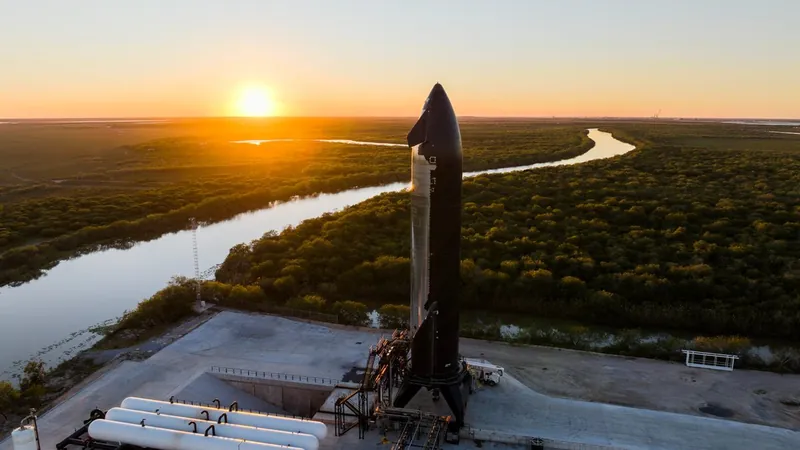
Quebec's Liberal Party Crisis: A Dramatic Fight for Survival as Support Plummets
2024-12-16
Author: Noah
In the picturesque surroundings of Old Montreal, where the sun lazily sets over vibrant streets, an unexpected chill permeates the air within the elegant confines of the Place d'Armes Hotel. The Liberal Party of Canada, once a dominant force in Quebec, is facing an existential crisis as it struggles to draw even small crowds to crucial fundraising events.
Just last month, only 87 attendees gathered to support Prime Minister Justin Trudeau and Foreign Affairs Minister Mélanie Joly during what was supposed to be a major summer fundraiser. This lackluster turnout is emblematic of a troubling trend for the party, which appears to be hemorrhaging support in its last bastion in Quebec. In stark contrast, Pierre Poilievre and the Conservative Party recently raised an impressive $450,000 at an event in Mount Royal that attracted 223 attendees—a clear sign that Liberal strongholds are shifting.
The political landscape seems to be changing rapidly. Polls indicate that traditional Liberal seats are at risk, with influential figures like Joly being outperformed on the fundraising circuit by colleagues such as François-Philippe Champagne, raising questions about her future standing within the party. Speculation is rife that Joly may be positioning herself for a leadership challenge, especially after a high-profile feature in the New York Times stirred rumors of dissent within the party ranks.
"Is there even a pilot on the plane?" one worried Liberal insider questioned, reflecting the growing anxiety among party members as they face an uncertain electoral future. Many prominent MPs are starting to prioritize self-preservation over party loyalty, a shift that could prove disastrous in the run-up to the upcoming elections.
The polling data paints a chilling portrait for Liberal candidates. Trudeau himself, who once garnered over 50% of the vote in his Papineau riding, could secure barely a third of votes if elections were held immediately. Joly's own riding, previously a secure Liberal seat, is now a fierce battleground with the Bloc Québécois closing in rapidly. Across the board, the Liberal Party is seeing its support erode among francophone voters—the bedrock of its historical strength in the province.
Despite a few signs of life, such as an uptick in digital fundraising last November, the party appears to be struggling both to recruit capable candidates and to entice donations. "This year alone, we've trained thousands of volunteers across Quebec," asserted Parker Lund, the party's communications director, but these efforts may not suffice without a resonant strategy to reclaim ground lost to a resurgent Bloc and Conservative force.
As internal tensions surface and the party's collective focus shifts to individual electoral survival, the leadership faces a pivotal challenge: rekindling grassroots support while countering the impressive fundraising and organizing capabilities of their rivals. With the clock ticking down to future elections, will the Liberals manage to revive their campaign, or is this the beginning of the end for one of Canada's most storied political institutions in Quebec? The outcome could very well reshape the future of Canadian politics as we know it.









 Brasil (PT)
Brasil (PT)
 Canada (EN)
Canada (EN)
 Chile (ES)
Chile (ES)
 España (ES)
España (ES)
 France (FR)
France (FR)
 Hong Kong (EN)
Hong Kong (EN)
 Italia (IT)
Italia (IT)
 日本 (JA)
日本 (JA)
 Magyarország (HU)
Magyarország (HU)
 Norge (NO)
Norge (NO)
 Polska (PL)
Polska (PL)
 Schweiz (DE)
Schweiz (DE)
 Singapore (EN)
Singapore (EN)
 Sverige (SV)
Sverige (SV)
 Suomi (FI)
Suomi (FI)
 Türkiye (TR)
Türkiye (TR)